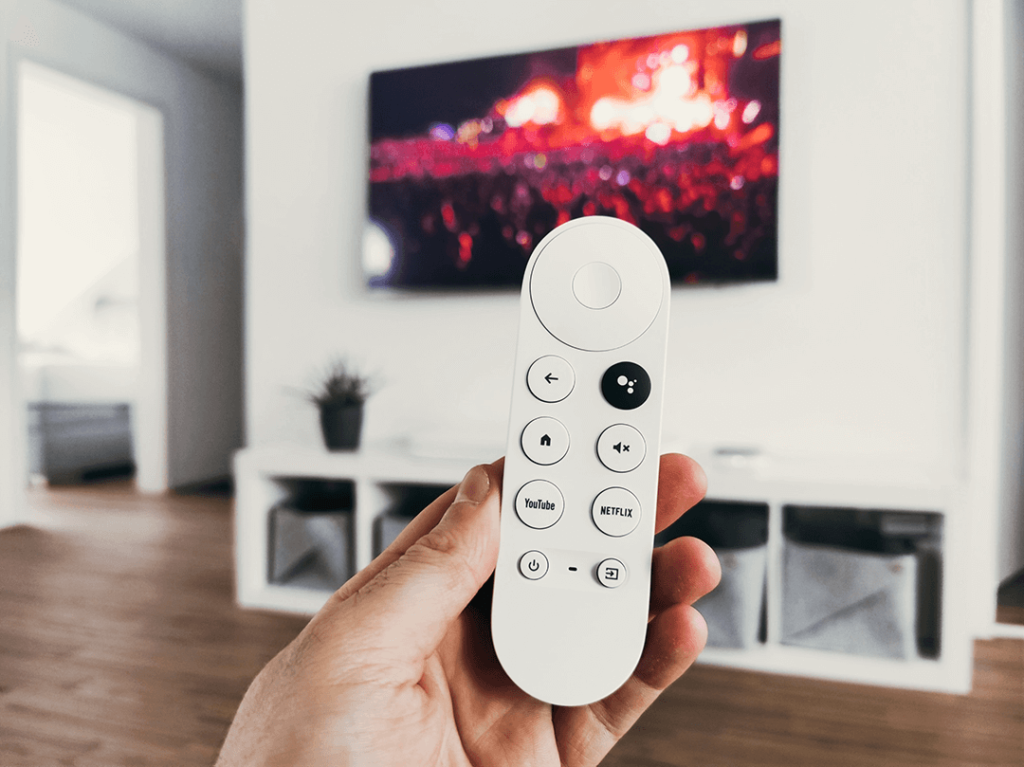
The hotel industry has a long and rich history of continuously evolving and adapting to new ways of operating. It keeps innovating and pushing technological boundaries to provide a better, more streamlined service for guests, and easier, more efficient workflows for staff and management. As a result, in order to remain competitive, hotels must continually seek out new solutions and innovations. AI solutions, especially Voice Assistants, bring exciting new ideas and services to many levels of hospitality – front of house, behind the scenes, and directly to the guests.
AI or Artificial Intelligence can sometimes feel like a buzzword, thrown around in articles and popular media to garner easy attention or reactions – but AI itself in its actual applications is often less fanciful, but no less exciting nor innovative. Artificial intelligence is, as the name would suggest, a simulated, inorganic ability to make decisions, synthesise information, and infer meaning as shown by machines.
This ability can be programmed from the get-go, or it can be learned, as seen through a process called machine learning. Machine learning is when AI is fed a database of information, images, decision chains, or text passages, and then looks for features and patterns in the data in order to make reasonable choices, understand new information, react appropriately, or produce new content. Although this process often happens before the product reaches consumers, sometimes the AI learns from us – and from those cases, we may have first-hand experience in machine learning. Perhaps you have noticed that your speech-to-text programme or your virtual assistant on your smart device gets better at understanding the way you talk, your unique phrases, or your accent over time. This is because it is learning from you and adjusting to become better at its job.
From just this simple example we can imagine how AI and machine learning could be applied to a myriad of different situations to help us gain insights into consumer behaviour and create better products and services – especially in the hospitality industry.

Although AI is used in many of the products we use daily; like social media algorithms and search engines, people may not know just how prevalent it is in our lives already. When people think of AI, their minds often gravitate towards sensational and sometimes negative stories and projected dark futures. This can be seen in the way AI is presented in our media, as headlines proclaim a potential employment crisis or a technology driven loss of personal privacy. AI often plays the villain or at least a catalyst for negative change in fictional media. As found through a survey conducted by Bristows, a law firm specialising in intellectual property and technology, in partnership with Censuswide Survey Consultants, building public trust is key to facilitating a smooth integration of AI into our lives. Although there is some distrust amongst the public with regard to AI, things are on the up, especially for people under 35.
Additionally, the public perception of AI has improved through variety of positive news stories where AI played an important role. For example, the publicly available AI powered image generation software, such as Dall-e and Mid Journey have gathered lots of positive press and usage among internet users; the software that can be used even by AI laymen for creative expression. This playful engagement with AI builds trust and sparks public excitement for AI innovations. Conversational AI has made great strides in recent years, moving far beyond the novel chatbots, and now, it is capable of intelligent conversations. In November 2022, ChatGPT was released and received with great acclaim for its human-like responses and ability to remember previous conversations with particular users. On a more practical end, self-driving cars that use AI to make road decisions have been exciting for many consumers. The tide is turning, and consumers are more willing than ever and even actively seeking out AI products there’s never been a better time to start embedding AI into your business.
Before jumping into how AI can be used in hotels moving forward, it’s good to look at how AI is being used in hotels and hospitality now. AI use in the hotel industry begins right from the moment the guests start looking for accommodation online with dynamic pricing in online booking services. Dynamic pricing helps businesses maximise their profits through optimising prices of rooms and other hotel services. These tools collect real-time data about consumer behaviour; how many people are looking, how much they are paying for rooms and services, and also how many people are actually making a purchase. Then, this data is captured and analysed by AI. From there, the AI uses consumer behaviour trends to adjust prices according to the demand and help hotels to get the most out of each transaction. AI is also being used to monitor hotel systems behind the scenes, with AI controlling heating, cooling, and air circulation to boost efficiency. These functions are invaluable to modern hotels, allowing managers to save costs, resources, and time, which requires a considerably low initial financial investment. These practices create more sustainable businesses and help hotels gain a competitive advantage. However, there are many more services and innovations that could be implemented into all levels of the hotel system, starting today.

AI usage in hotels frequently makes headlines in tech-focused online newspapers and blogs. However, these applications are not suitable for every hotel. In some hotels with robot receptionists or robot concierges, the guests are fully aware that they are greeted by an AI, as the interface or product they are interacting with is clearly robotic. These AI encounters are novel and interesting for guests who seek out that kind of experience, but are not for every type of customer and thus definitely not for every business. It is easy for a consumer to imagine that this is the only type of hotel AI that exists – but it is far from the only way AI is used in hotels.
Design thinking asks us not to imagine how an existing service can be improved, but instead asks us to think about how the problem the service exists to solve can be solved in a better, more efficient way. In other words, it looks at how the base issue can be tackled in a better way, rather than iterating on the solutions that already exist. For example, if we were designing a new mop using design thinking, we would not look at improving existing mop designs with ergonomic handles or better water retention, but instead think about how floors can be cleaned better, faster, and easier.
This is the best approach when thinking about how to implement AI solutions in hospitality. In criticism against the Turing Test – a test which poses that the ultimate success of an AI is that it can pass as a human in its function or intelligence undetected – computer scientists Stuart Russell and Peter Norvig stated that we would not measure the success of our flying machines against how well it blends in with pigeons, and thus striving for human-likeness is not the ultimate goal. So in the same logic, we should not measure the success of a hotel AI over how well it can perform the same role that a human member of staff would do, and instead, look at how the AI can improve the overall service and function of the hotel itself.

It would be impossible for staff to be present in every single room in your hotel waiting on each guest personally. This kind of luxury, all-encompassing, truly tailored stay experience is only available at the super high-end luxury hotel suites. And even if it was feasible, customers may not find the idea of an ever-present person in their room to be appealing as they may find it invasive or just plain awkward. This is one of the areas where we can view AI as the best possible solution to this problem – not looking at how the AI can replace staff, but instead looking at what functions it can perform that can’t be done by human staff.
One way how AI has found a way into our lives is through virtual assistants. These voice-enabled AI-powered devices perform functions that would be impossible for humans to do at the speed and convenience that the voice assistants can – controlling media functions, thermostats, organising calendars, quickly searching for information, and making online purchases to name a few. Most consumers are already familiar with this technology. According to Statista, as of 2020 4.2 billion digital voice assistants were in use, with that number projected to reach 8.4 billion by 2024. So although the hotel environment is a fairly new application for voice assistants, the guests are already familiar with the user interface. This is important because, as exciting as the new technologies are if the consumer can’t use them effectively or, for that matter, use at all, it is rendered pointless. On top of that, the integration of voice AI digital assistants and your hotel also does not require any major structural changes or large pieces of infrastructure to support the system, which is making this technology very easy to implement.
You may be thinking to yourself, what can a hotel-specific virtual assistant do that the virtual assistant on phones cannot, and how would this be useful for hotels? Well, not all virtual assistants suit all purposes, but there are virtual assistants powered by AI, that are purposely designed for hotels.
In-room virtual assistants have many useful features. They answer basic questions, such as where are the hotel facilities, send troubleshooting tickets to hotel maintenance staff, place room service orders like requesting towels or other amenities, make phone calls, and the list goes on. With the AI connected to the hotel’s internal system, the in-room voice assistants respond instantly and the customers can freely ask for help at any time without having to go to the hotel staff directly. It also means that the guests do not need to learn a myriad of systems to get the full experience and benefits during their stay. All of these conveniences add up to a much more enjoyable, smooth stay.

Through the use of a virtual voice assistants hotels can integrate themselves into all facets of the holiday experience. With voice AI, it is easy for a hotel to accommodate many different types of guests, ensuring a better experience and leaving guests with a greater impression of the hotel’s role in their overall experience.
Voice assistants can give suggestions and recommendations for restaurant activities and sites that the guests can visit in the local area. An important role of a concierge is to give advice and recommendations to guests in the hotel. Customers often approach the reception desk asking for good places to eat, directions on how to get to places, and also what to see nearby. As discussed above, when the AI takes responsibility for these roles it reduces the concierge’s workload significantly, but additionally, it makes it much easier for guests to get the information they need. Even with the advent of mobile internet and information readily available at our fingertips, there is something different about asking a local for a recommendation. Through virtual assistants hotels can create that local experience with the information and features that reach the guest in their hotel room.
Again, the benefits of virtual assistants go beyond convenience. This technology allows hotels to direct customers to partnering businesses and upsell coupons for local attractions or events – so that hotel and the destination can benefit. Virtual assistants can also inform about closures, traffic incidents, or any other inconveniences that guests may encounter during their stay, as well as letting guests know about events in the area that would otherwise be hard to find.
Despite all of these benefits and opportunities provided by AI and hotels this is not the end of the line for this technology. There is constant innovation happening in the AI sphere, and many of these new technologies are being implemented in virtual voice assistants – where the use of these technologies in hotels will only become more invaluable.
Despite all of these benefits and opportunities provided by hotel AI, this is not the end of the line for this technology. There is constant innovation happening in the field of artificial intelligence, and many of these new technologies are advancing voice AI technology to a greater extent than ever before.
One of the things that are hard for an AI to replicate is human conversation. Going back to the topic discussed above of the Turing test, although this may not be a good measure for all types of AI, it is still something we think about when we consider conversations; and so far it has eluded us. However, a more conversation-adept AI is on the horizon and we’ll get virtual assistant interactions with a more personalised and human-like feel. This will both be useful for a smoother experience and also for making sales as people are more willing to spend money when the process is easy, and tailored to their case.
Improvements in cybersecurity will also make the use of AI more appealing to both the business and the consumer. Using AI to power cybersecurity is a way that companies live to adapt to potential attacks and protect guest information and hotel data in a more secure way than we have ever been able to.
As well as being able to mimic human interactions better, virtual assistants will also be able to read humans better in the future – picking up on our social cues, juggling conversation topics, intuiting what a person needs, and reacting before implicit details or tone. These abilities will boost all of the benefits we are currently experiencing with AI and paint an exciting portrait of the future of AI used in hotels and hospitality.
Do you want to learn more about what we’re building? Contact us to schedule a demo.